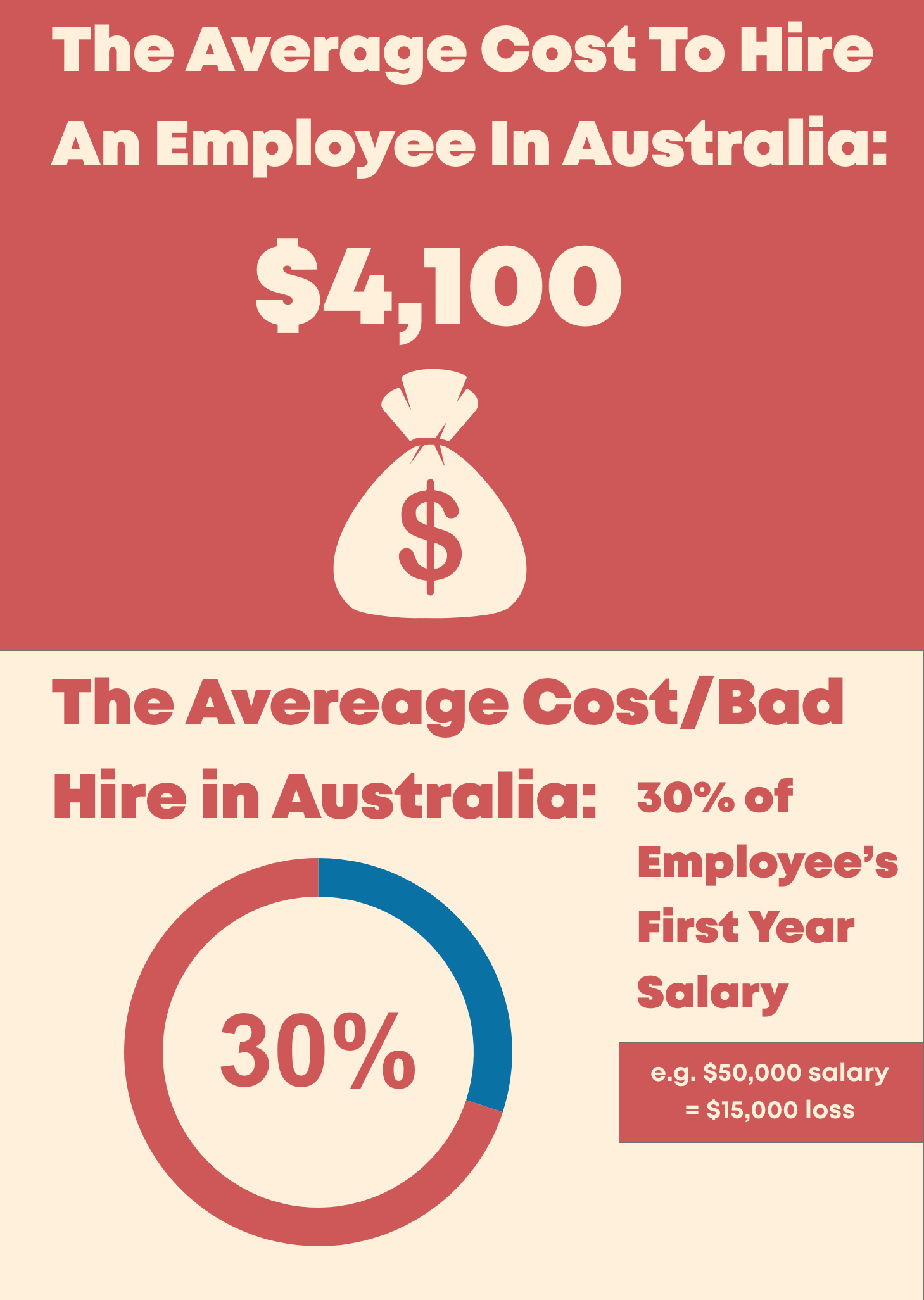
Experience is a major factor when sorting through the resumes of possible candidates, seeing that a candidate has done this before means a lot to an employer, why?
Well, they know how to do their job in the best way possible! But what happens when this professional starts having a negative impact on the culture of your department or company? What happens when they are not a cultural fit?
A survey conducted by the Society of Human Resource Management showed that the average cost per hire in Australia is $4,100 while the average cost per BAD hire is at least 30% of the employee’s first-year salary.
This loss is extremely unnecessary but as you know can happen. This loss can also be prevented in some cases, by choosing the right candidate for your company, not just the right candidate on paper.
Weigh up your options

Hiring a highly skilled individual that can do their job to a high level of efficiency is amazing! Employees need to be driven to smash goals and make money for you to have a successful revenue flow. But when building a strong department, you must remember that culture is vitally important to your goals.
Having a friendly and encouraging work culture brings everyone in the department up. Having a winning environment creates a sense of competitiveness, which is impossible to avoid, this is part of human nature and works beneficially for you as a manager.
Having employees working harder each day to try and achieve their KPIs or meet their numbers for the quarter is a blessing.
However, you need to have a positive culture, not a trading floor on Wallstreet. Employees need to be comfortable with the people they work with. They don’t want to feel like they can’t speak to the person next to them about their weekend or ask a peer to grab a drink after work or a coffee in the morning. Even though people may be working on separate tasks or dealing with different clients, it still needs to be a team environment.
Think about the way this person communicates with you compared to your current succeeding employees. How do they take on what you are saying? How do you communicate with them? Does the conversation flow? These are all questions that need to be running through your mind while speaking to this candidate, and finally, how do you think they will get function alongside the rest of the team?
Making the decision

It can become obvious who a person really is very quickly in an interview. Take notice of the qualities they bring forward during the interview, do they focus on their skillset the whole time, or are they also bringing up soft skills that they possess?
Things like this are just on the surface. Going hand in hand with what was mentioned earlier, you must have a good knowledge of your team to be able to tell if this candidate would fit well with the group. Finding these possibly disappointing communication traits in your candidate can also be a plus!
This means you can weigh up what you want to do with them earlier in the process and that you don’t end up leading them on until it’s too late, you can make a decision on whether they can improve on their contribution to the culture and not just to the numbers.
Find the balance!

This blog is in no way telling you to hire a great group of people that have no professional experience and that have no skills in your area of work. It is telling you that culture is extremely important and that it needs to be matched with the skills required to succeed in your industry.
One bad egg in your basket can ruin the rest of them. If you have one employee who makes others feel as if they don’t have a voice, this employee can single-handedly bring down the culture in your workplace and make it a toxic environment.
In the long run, skill can always come but if the culture is failing so is the business. Your employees all need to be on the same page and need to be able to feel safe communicating with each other.
Final thoughts
Finding the right candidate is a difficult task, and it may feel as though this blog was more of a discouragement but this is the opposite purpose of this blog. The takeaway should be that employers need to take a second look sometimes and consider how their newest employee will fit into the team culture. By doing this you can save time, money, and the struggle of letting a newly onboarded employee go.


COMMENTS